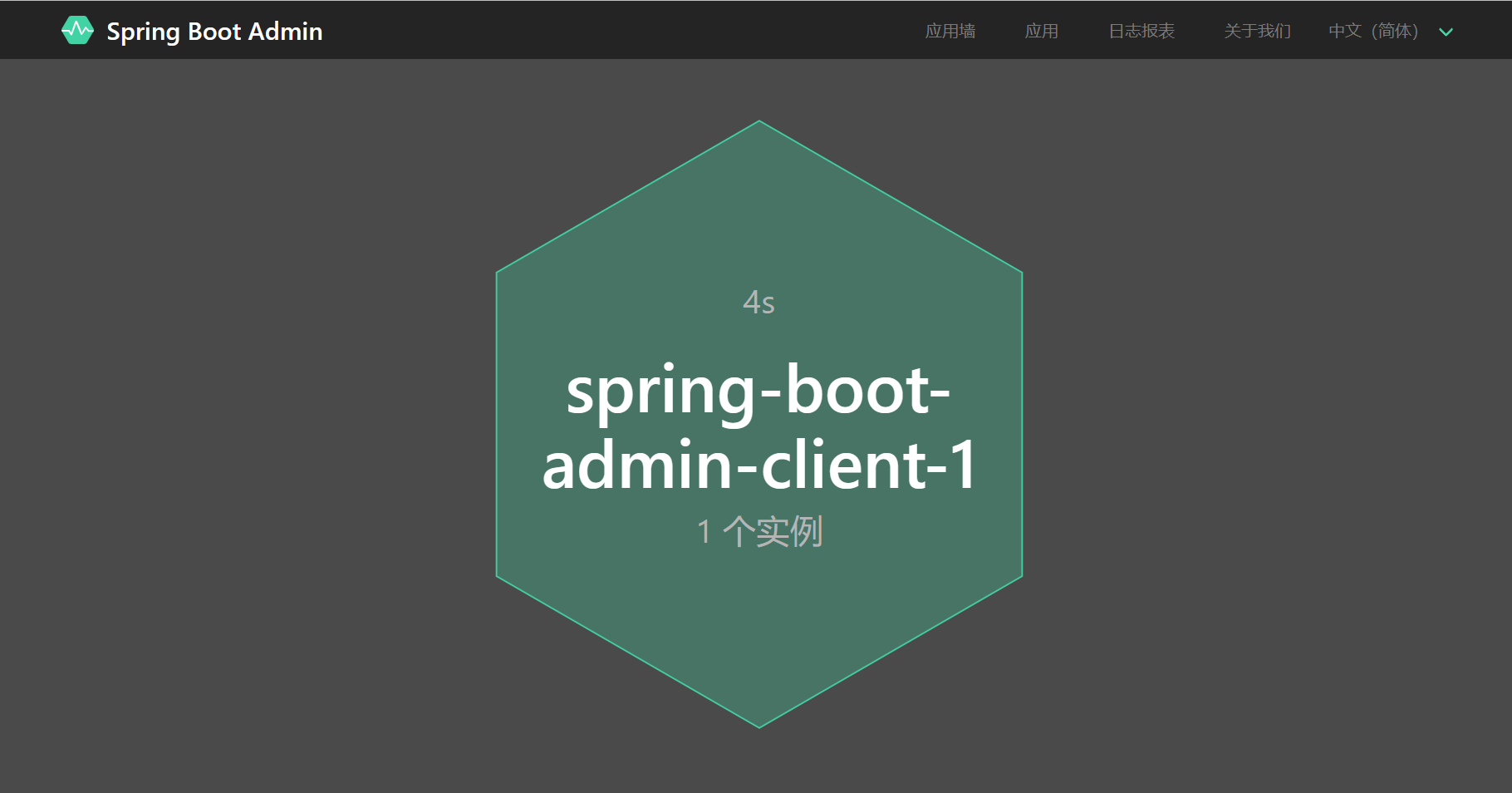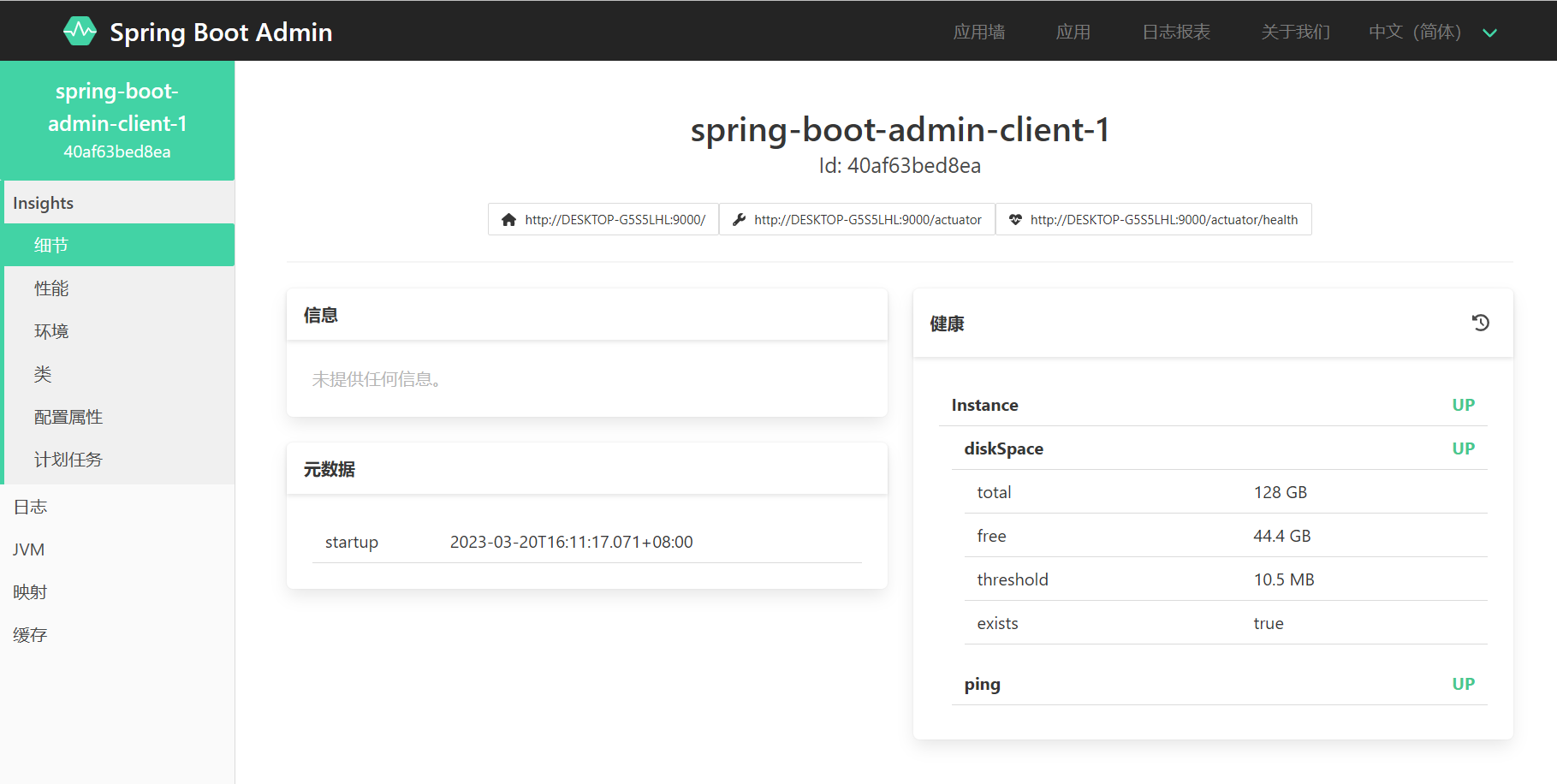使用Spring Boot Admin服务
目录
警告
本文最后更新于 2023-03-20,文中内容可能已过时,请谨慎使用。
简介
Spring Boot Admin (SBA) 是一个社区开源项目,用于管理和监视 Spring Boot 应用程序。
通过 SBA 可以浏览所有被监控的 Spring Boot 项目,详细的 Health 信息、内存信息、JVM 系统和环境属性、垃圾回收信息等。
搭建一个 SBA 服务端(Server),其他被监控的 Spring Boot 应用作为客户端(Client),客户端通过 HTTP 的方式将自己注册到服务端,以供服务端进行监控服务
SBA 服务端
1.导入依赖
<dependency>
<groupId>de.codecentric</groupId>
<artifactId>spring-boot-admin-server</artifactId>
<version>2.7.9</version>
</dependency>
<dependency>
<groupId>de.codecentric</groupId>
<artifactId>spring-boot-admin-server-ui</artifactId>
<version>2.7.9</version>
</dependency>
注意上述依赖的版本号需与 SpringBoot 版本一致
2.配置application.yml
# 配置spring-boot-admin-server地址
spring:
boot:
admin:
client:
url: "http://localhost:8000/admin-server"
context-path: "/admin-server"
# 配置端口号
server:
port: 8000
3.在启动类上添加@EnableAdminServer注解
@SpringBootApplication
@EnableAdminServer
public class SpringBootAdminServerApplication {
public static void main(String[] args) {
SpringApplication.run(SpringBootAdminServerApplication.class, args);
}
}
启动项目,访问http://localhost:8000/admin-server

SBA 客户端
1.导入依赖
注意spring-boot-admin-starter-client版本号和 SpringBoot 项目版本号一致
<dependency>
<groupId>de.codecentric</groupId>
<artifactId>spring-boot-admin-starter-client</artifactId>
<version>2.7.9</version>
</dependency>
2.配置application.yml
# 配置spring-boot-admin-server-client
spring:
boot:
admin:
client:
url: http://localhost:8000/admin-server #要注册的server端的url地址
application:
name: spring-boot-admin-client-1 # 应用名
# 项目端口
server:
port: 9000
#开放端点用于SpringBoot Admin的监控
management:
endpoint:
shutdown:
enabled: true #开启端点
health:
show-details: always # 是否展示健康检查详情
endpoints:
web:
exposure:
include: "*" # 暴露所有端点
health:
ldap:
enabled: false #关闭对ldap的健康检查
# 配置日志文件路径,springAdmin服务端可实时查看
logging:
file:
name: logs/info.log
重新访问服务端地址: http://localhost:8000/admin-server
点击应用墙

点击中心的实例模块查看更多信息

点击日志,可以查看应用在控制台的输出,验证了上面的日志配置

配置邮件通知
SBA 服务端也可以配置邮件预警服务,默认情况下对于被检测的应用启动或者停止的时候会触发预警。
1.添加邮件依赖:
<dependency>
<groupId>org.springframework.boot</groupId>
<artifactId>spring-boot-starter-mail</artifactId>
</dependency>
2.修改后的 admin-server 配置文件
spring:
mail:
host: smtp.163.com
username: xxx@163.com
password: 授权码
properties:
mail:
smtp:
auth: true
starttls:
enable: true
required: true
boot:
admin:
client:
url: "http://localhost:8000/admin-server"
context-path: "/admin-server"
notify:
mail:
from: xxx@163.com
to: xxx@qq.com
server:
port: 8000
重新启动服务端和客户端测试
应用启动邮件通知

应用下线邮件通知

开启登录验证
1.在服务端导入Spring Security依赖
<dependency>
<groupId>org.springframework.boot</groupId>
<artifactId>spring-boot-starter-security</artifactId>
</dependency>
2.在服务端配置Spring Security
@Configuration
public class SecuritySecureConfig extends WebSecurityConfigurerAdapter {
private final String adminContextPath;
public SecuritySecureConfig(AdminServerProperties adminServerProperties) {
this.adminContextPath = adminServerProperties.getContextPath();
}
@Override
protected void configure(HttpSecurity http) throws Exception {
SavedRequestAwareAuthenticationSuccessHandler successHandler = new SavedRequestAwareAuthenticationSuccessHandler();
successHandler.setTargetUrlParameter("redirectTo");
successHandler.setDefaultTargetUrl(adminContextPath + "/");
http.authorizeRequests()
//1.配置所有静态资源和登录页可以公开访问
.antMatchers(adminContextPath + "/assets/**").permitAll()
.antMatchers(adminContextPath + "/login").permitAll()
.anyRequest().authenticated()
.and()
//2.配置登录和登出路径
.formLogin().loginPage(adminContextPath + "/login").successHandler(successHandler).and()
.logout().logoutUrl(adminContextPath + "/logout").and()
//3.开启http basic支持,admin-client注册时需要使用
.httpBasic().and()
.csrf()
//4.开启基于cookie的csrf保护
.csrfTokenRepository(CookieCsrfTokenRepository.withHttpOnlyFalse())
//5.忽略这些路径的csrf保护以便admin-client注册
.ignoringAntMatchers(
adminContextPath + "/instances",
adminContextPath + "/actuator/**"
);
}
}
3.添加配置
服务端设置用户名和密码
spring:
security:
user:
name: admin
password: 123456
客户端设置要连接的服务端的账号密码
spring:
boot:
admin:
client:
url: http://localhost:8000/admin-server #要注册的server端的url地址
username: admin #连接服务端的账号和密码
password: 123456



